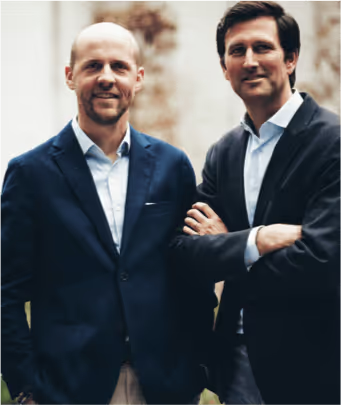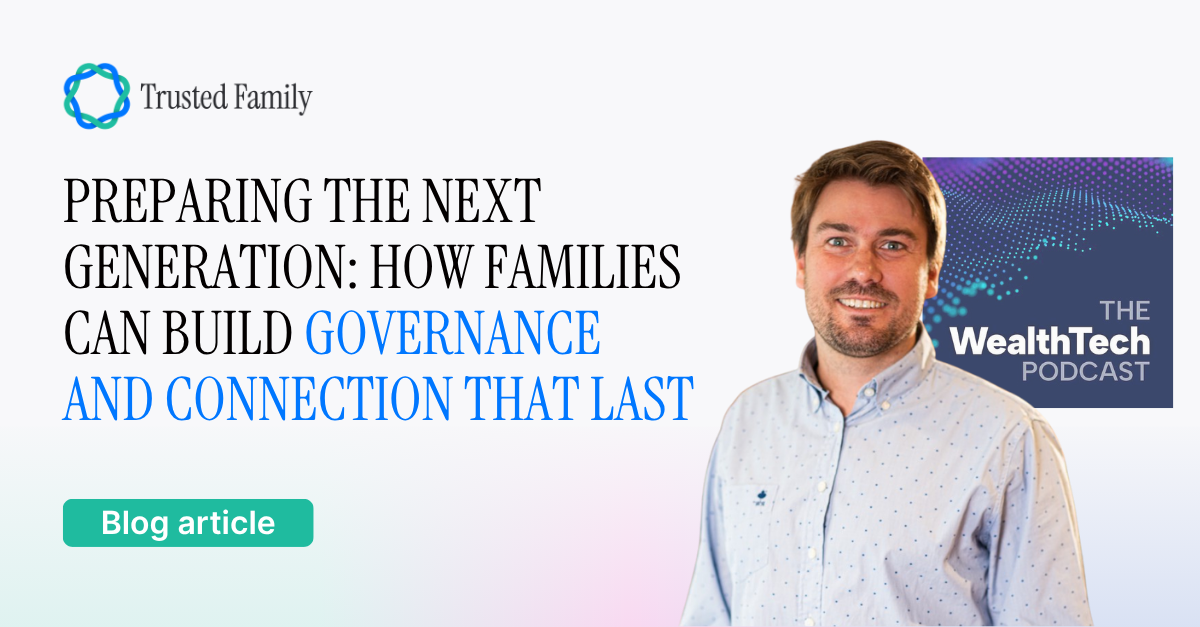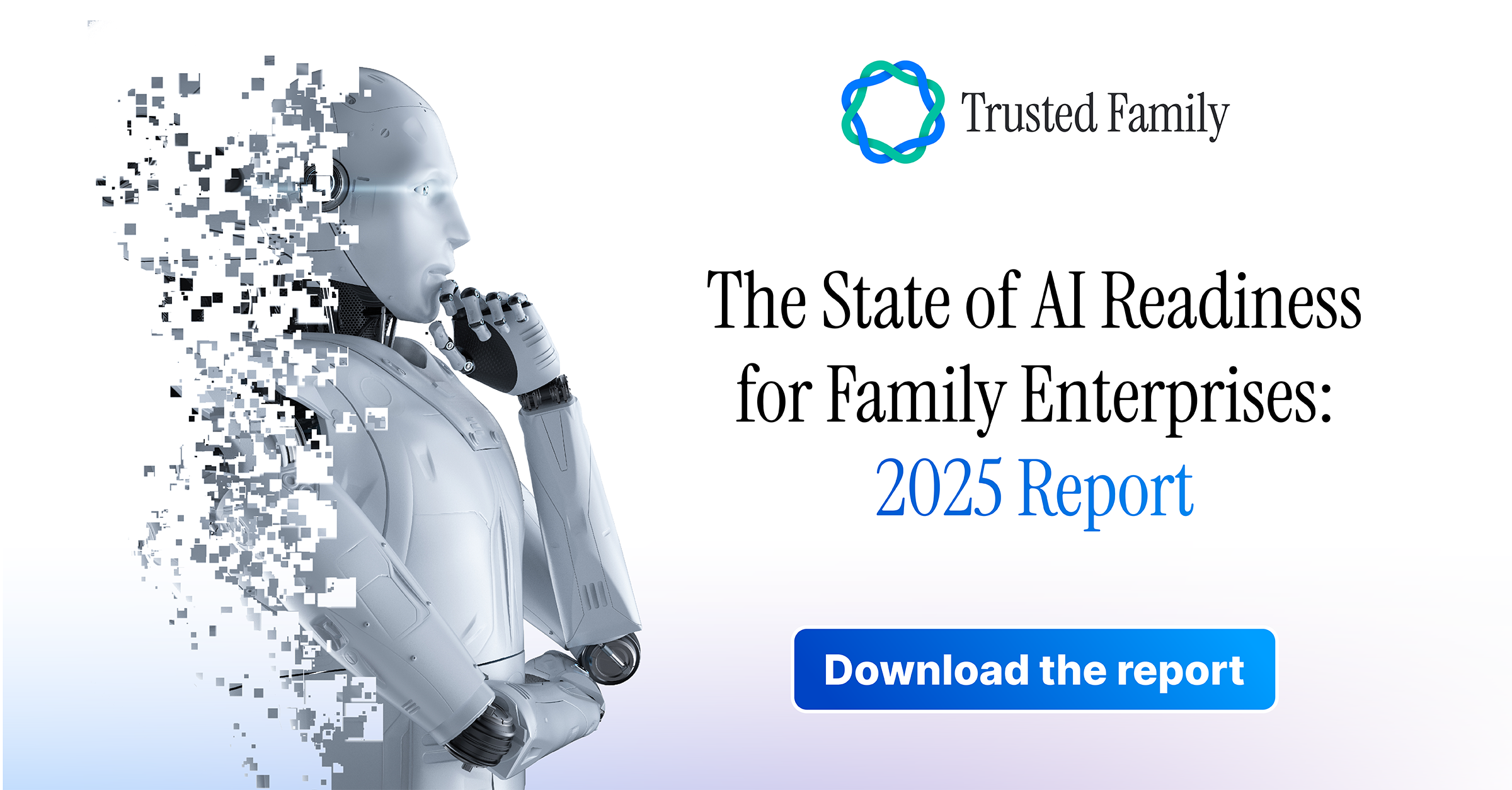This article is based on my conversation with Mark Wickersham on The WealthTech Podcast, where we explored how families can use governance, education, and technology to prepare the next generation for leadership.
The Challenge of Continuity
Every family I speak with faces the same essential question: how do we ensure the family remains connected and purposeful as it grows across generations?
The next decade will see one of the largest intergenerational wealth transfers in history. But the challenge is not just about transferring assets -it’s about transferring values, vision, and trust. Successful succession doesn’t happen by chance; it happens through intentional governance, communication, and education.
At Trusted Family, we’ve worked with hundreds of families and family offices across the world. Each one approaches governance differently, but the goal is always the same: to build a framework that sustains both wealth and relationships over time.
Governance: A Framework for Alignment
When people hear the word governance, they often picture bureaucracy: committees, charters, and endless meetings. But real governance is much more human. It’s about defining how a family communicates, makes decisions, and resolves differences.
Some families need detailed structures: a family council, shareholder agreements, or education committees. Others operate perfectly well with a simple set of shared principles.
As I shared on The WealthTech Podcast:
“Families don’t all need the same level of structure. What matters most is alignment; shared values and a clear understanding of what it means to be part of the family.”
Governance works best when it’s flexible and tailored. For younger families or first-generation founders, it might start as an informal family charter. For larger, multigenerational families, it can evolve into an institutional framework with formal councils and dedicated governance officers. The structure should fit the family, not the other way around.
Human Capital: The Often Overlooked Asset
Every family office manages its financial capital meticulously. But fewer invest the same time and energy into their human capital, the people, relationships, and shared purpose that hold everything together.
In families entering their third or fourth generation, I’ve seen the difference that a dedicated person or team focused on human capital can make. These individuals oversee education programs, organize family assemblies, and ensure that family members (especially younger ones) are informed and engaged.
It’s about nurturing a culture of participation and pride. As families grow, new generations may live in different countries, speak different languages, or pursue different careers. Maintaining a sense of connection requires proactive effort. A trusted governance system, supported by the right technology, helps keep that sense of belonging alive.
Preparing the Next Generation
One of the most surprising insights I’ve learned from working with families is that preparing the next generation actually begins by preparing the current one.
I once spoke with a client who said their first step in next-gen education was educating the senior generation. Before you can empower younger family members to lead, the current generation must be willing to share control, delegate responsibility, and make space for new ideas.
Next-gen development works best when it’s experiential. Families can host workshops, mentorship programs, or even “investment simulations” where younger members are given a sum of money to manage. These exercises encourage learning through experiences and failure in a safe environment.
The goal isn’t just to teach financial literacy; it’s to cultivate independence, collaboration, and accountability.
The Shift from Wealth to Purpose
Another major change we’re seeing is how the next generation defines success. For many, it’s not just about the money.
They want their families’ businesses and investments to have an impact on communities, the environment, and the world around them. I’ve seen families create foundations, impact funds, and sustainability initiatives, not only to give back but also to keep their younger members meaningfully involved.
As I shared during the podcast:
“The rising generation wants to inherit a business that’s ready for the future, one that has purpose, values, and positive impact.”
That sense of purpose is the new glue that holds families together. It transforms governance from a rulebook into a living expression of shared identity.
Building Connection Through Technology
Technology plays a vital role in making all of this possible. With families spread across cities and continents, secure digital platforms like Trusted Family enable communication, document sharing, voting, and education in one connected space.
But technology is not a replacement for relationships; it’s an enabler. It helps families communicate consistently, preserve their history, and collaborate on decisions with clarity and transparency.
Conclusion
Family continuity isn’t built on wealth alone. It’s built on communication, connection, and shared purpose supported by structures that make those things sustainable.
The most successful families are the ones who see governance not as control, but as connection; who view education not as instruction, but as empowerment; and who understand that technology, when thoughtfully used, can strengthen both.
At Trusted Family, we’re proud to help families achieve that balance, preserving their legacy while embracing innovation for generations to come.


















